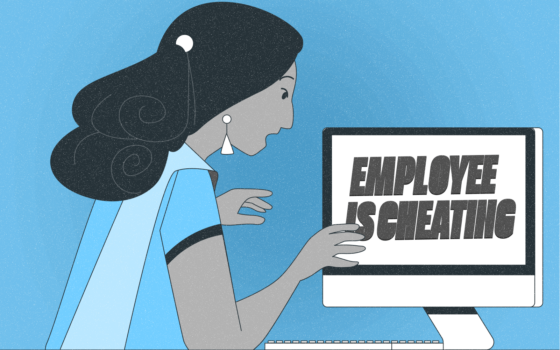Interviewing Techniques
The Art and Science of Interviewing Techniques
In the ever-evolving landscape of human resources, mastering the art of interviewing is a crucial skill for HR professionals. Effective interviewing techniques are the cornerstone of successful recruitment, enabling organizations to identify top talent and make informed hiring decisions. This comprehensive guide delves into the intricacies of interviewing techniques, providing HR practitioners with valuable insights and strategies to enhance their interviewing prowess.
Understanding the Fundamentals of Interviewing
Before diving into specific techniques, it's essential to grasp the fundamental principles that underpin effective interviewing. At its core, an interview is a structured conversation designed to gather information about a candidate's qualifications, experience, and suitability for a particular role. However, it's much more than a simple Q&A session; it's an opportunity to assess a candidate's potential fit within the organization's culture and values.
Successful interviewers approach each interaction with a clear objective, a well-prepared strategy, and an open mind. They understand that the interview process is a two-way street, serving not only to evaluate candidates but also to showcase the organization as an attractive place to work.
Types of Interview Techniques
There are various interviewing techniques, each with its own strengths and applications. Understanding these different approaches allows HR professionals to select the most appropriate method for each situation.
1. Structured Interviews
Structured interviews follow a predetermined set of questions asked in a specific order. This technique ensures consistency across all candidates and facilitates easier comparison. It's particularly useful when interviewing multiple candidates for the same position.
2. Unstructured Interviews
In contrast, unstructured interviews are more conversational and flexible. While they may follow a general outline, the interviewer has the freedom to explore topics as they arise naturally. This approach can be effective in uncovering unexpected insights about a candidate's personality and thought processes.
3. Behavioral Interviews
Behavioral interviewing is based on the premise that past behavior is the best predictor of future performance. Questions in this format typically ask candidates to describe specific situations from their past experiences, focusing on how they handled challenges or demonstrated particular skills.
4. Situational Interviews
Situational interviews present hypothetical scenarios and ask candidates how they would respond. This technique is useful for assessing problem-solving skills and decision-making abilities, particularly for roles that require quick thinking and adaptability.
5. Panel Interviews
Panel interviews involve multiple interviewers questioning a single candidate simultaneously. This approach can provide a more comprehensive evaluation of the candidate from different perspectives but requires careful coordination among panel members.
Preparing for the Interview
Thorough preparation is key to conducting effective interviews. This involves several crucial steps:
1. Reviewing the Job Description
A deep understanding of the role's requirements is essential. Familiarize yourself with the key responsibilities, required skills, and qualifications to ensure your questions are relevant and targeted.
2. Studying the Candidate's Resume
Carefully review the candidate's resume and application materials. Identify areas that require clarification or further exploration during the interview.
3. Developing a Question Strategy
Create a list of questions that align with the job requirements and the information you need to gather. Include a mix of technical, behavioral, and situational questions to get a well-rounded view of the candidate.
4. Preparing the Interview Environment
Whether conducting in-person or virtual interviews, ensure the environment is conducive to a professional and comfortable conversation. Test any technology in advance to avoid disruptions.
Mastering the Art of Questioning
The questions you ask and how you ask them can significantly impact the quality of information you gather during an interview. Here are some key principles to keep in mind:
1. Open-Ended Questions
Utilize open-ended questions that encourage detailed responses. For example, instead of asking, "Do you work well in a team?" try "Can you describe a situation where you had to collaborate with a diverse team to achieve a goal?"
2. Probing Questions
Don't hesitate to ask follow-up questions to delve deeper into a candidate's responses. Probing questions can uncover valuable insights and help you assess the depth of a candidate's experience.
3. Behavioral Questions
Incorporate behavioral questions that require candidates to provide specific examples from their past experiences. For instance, "Tell me about a time when you had to deal with a difficult customer. How did you handle the situation, and what was the outcome?"
4. Avoiding Leading Questions
Be cautious not to ask leading questions that suggest a desired answer. Instead, frame questions neutrally to allow candidates to express their genuine thoughts and experiences.
Active Listening and Observation
Effective interviewing is not just about asking the right questions; it's also about listening attentively and observing non-verbal cues. Practice active listening by:
- Giving the candidate your full attention
- Paraphrasing and summarizing their responses to ensure understanding
- Noting body language and tone of voice
- Allowing for moments of silence to give candidates time to think and elaborate
These skills help you gather more comprehensive information and create a more engaging interview experience for the candidate.
Assessing Cultural Fit
While technical skills and experience are crucial, cultural fit is increasingly recognized as a key factor in successful hires. Incorporate questions and techniques that help you evaluate how well a candidate aligns with your organization's values and work environment.
Consider asking about:
- Preferred work styles and environments
- Motivations and career aspirations
- Approaches to teamwork and collaboration
- Attitudes towards diversity and inclusion
Remember that assessing cultural fit should not lead to homogeneity. Instead, focus on finding candidates who can contribute to and thrive within your organization's culture while bringing diverse perspectives and experiences.
Handling Challenging Interview Situations
Even with thorough preparation, interviewers may encounter challenging situations. Being prepared to handle these scenarios professionally is essential:
1. Overconfident Candidates
When faced with an overly confident candidate, focus on asking for specific examples and details to verify their claims. Use probing questions to dig deeper into their experiences.
2. Nervous Candidates
Help nervous candidates feel more at ease by starting with simpler questions and maintaining a friendly demeanor. Provide clear instructions and allow them time to collect their thoughts.
3. Vague or Evasive Responses
If a candidate provides vague answers, politely ask for clarification or specific examples. Rephrase questions if necessary to ensure understanding.
4. Inappropriate or Discriminatory Questions
Be vigilant about avoiding questions that could be considered discriminatory. If a candidate volunteers inappropriate information, redirect the conversation back to job-related topics.
Leveraging Technology in Interviewing
Advancements in technology have introduced new tools and platforms that can enhance the interviewing process:
1. Video Interviewing
Video interviews, whether live or pre-recorded, offer flexibility and can be particularly useful for initial screenings or when interviewing remote candidates.
2. AI-Assisted Interviewing
Some organizations are experimenting with AI tools to help screen candidates or analyze interview responses. While these can be valuable, it's important to use them judiciously and in conjunction with human judgment.
3. Interview Scheduling Software
Automated scheduling tools can streamline the process of coordinating interviews, saving time and reducing administrative burden.
Legal and Ethical Considerations
Interviewers must be aware of legal and ethical considerations to ensure fair and compliant hiring practices:
- Familiarize yourself with anti-discrimination laws and avoid questions related to protected characteristics such as age, race, religion, or marital status.
- Ensure consistency in the interview process across all candidates for a given role.
- Maintain confidentiality regarding candidate information and interview outcomes.
- Be transparent about the interview process and next steps.
Post-Interview Best Practices
The interview process doesn't end when the candidate leaves. Follow these best practices to maximize the value of your interviews:
1. Immediate Documentation
Document your impressions and key points immediately after each interview while the information is fresh in your mind.
2. Collaborative Evaluation
If multiple interviewers were involved, hold a debrief session to discuss observations and align on assessments.
3. Timely Follow-Up
Provide timely feedback to candidates, whether moving forward with their application or not. A positive candidate experience can enhance your employer brand.
4. Continuous Improvement
Regularly review and refine your interviewing techniques based on outcomes and feedback. Consider soliciting input from both successful hires and candidates who weren't selected.
Conclusion: The Ongoing Journey of Interview Mastery
Mastering interviewing techniques is an ongoing process that requires practice, reflection, and adaptation. As the workplace continues to evolve, so too must our approaches to identifying and attracting top talent. By honing your interviewing skills, staying informed about best practices, and remaining adaptable, you can significantly enhance your organization's ability to make successful hires and build strong, diverse teams.
Remember, every interview is not just an opportunity to assess a candidate but also a chance to represent your organization positively. Approach each interaction with professionalism, empathy, and genuine curiosity, and you'll be well on your way to conducting truly effective interviews that benefit both your organization and the candidates you meet.


